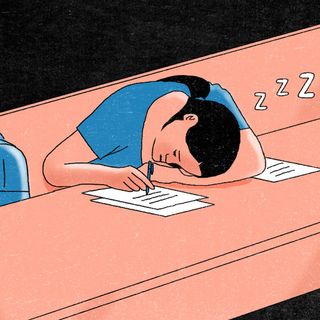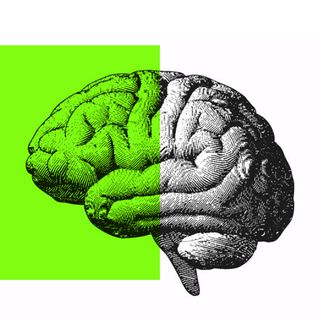Dementia, as a chronic disease with no known cure, has eluded science. But more research on causes and prevention methods is allowing scientists to decode the many neural and biological layers. A new study shows that mentally demanding occupations, those that require more decisions and engaging tasks, play a role in reducing the risk of dementia onset by as much as 23%.
Published in the BMJ on Thursday, the research is among the first to establish a concrete link between work-related cognitive stimulation and dementia.
Previous studies have noted the role any kind of mental stimulation, derived either through hobbies or conversations, plays a role in boosting cognitive health. But the current research shows how enrichment through work environments has a lasting effect. This is owing to the prolonged exposure to jobs throughout our lives.
To show the link, researchers looked at 100,000 participants across studies from the U.K., Europe, and the U.S., tracking work-related stimulation over the course of 17 years. They described cognitive stimulation during jobs as one that requires demanding tasks and in which people have to make high-level decisions. These may include medical professions, editors, chief executives, lawyers, high-level government officials. After taking into account age, sex, and lifestyle, they found people in demanding jobs had fewer cases of developing dementia.
“Our findings support the hypothesis that mental stimulation in adulthood may postpone the onset of dementia,” Mika Kivimäki, from University College London’s Institute of Epidemiology and Health Care, and the study’s lead author, said. Biologically, the high mental enrichment at work helps to reduce harmful proteins in the central nervous system that interfere with forming new brain connections like the development of synapses. Reduced production of these proteins helps to reduce the risk of dementia.
“Previous research has suggested that keeping the brain active can help build cognitive reserve, a type of resilience that helps the brain ‘rewire’ its connections more easily and keep working for longer when diseases like Alzheimer’s take hold,” Kivimäki adds. The cognitive reserve is the result of exposure to thousands of hours at work over decades that last “considerably longer.”
Related on The Swaddle:
In India, Dementia Care Is Draining Families’ Resources, Stamina
The observational study is promising, but researchers note it’s tricky to develop any watertight causation between the two factors. But the large-scale findings can inspire more research into the relationship between job and mental health.
In addition to job stimulation, researchers link even high education to greater risk reduction of dementia. Experts have noted that education continues to be a central factor of dementia prevention. The “cumulative exposure to both high education and high cognitive stimulation at work is associated with the greatest risk reduction of all,” researchers argue, noting the prevention risk at a pivotal 37%.
The other side of the research is how people in jobs that demand less cognitively, for instance, a fruit picker or a lorry driver, may be more vulnerable to dementia. The idea that well-educated and/or privileged people may be able to stave off brain damage and dementia symptoms is not new. An earlier study published in JAMA Network showed dementia prevalence fell in people who had stayed in school longer.
Dr. Sara Imarisio, head of research at Alzheimer’s Research in the U.K., who was not involved in the study, notes the findings can contribute to dementia research in their own way. “Not everyone is able to choose the type of work they do, but studies like this highlight the importance of finding activities that help keep the brain active, whether it’s through work or hobbies.”
Reducing dementia risk through lifestyle changes has previously focused on physical factors, such as focusing on what people eat and exercise. But the cognitive stimulation, the brainpower, is perhaps at the heart of any finding.
Moreover, the findings show possible biological underpinnings of dementia by highlighting the protein that plays a role and can also be used to direct treatment for other conditions that could benefit from cognitive stimulation.
The cognitive reserve may help rewire the brain, and enhance the brain’s ability to withstand damage. Other brain health interventions like art therapy or even playing video games, along with lifestyle changes, also work to enrich the reserve.




